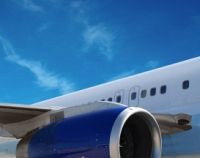

EasyJet is set to become the world's first major airline to operate net-zero carbon flights across its entire network, after announcing it would offset all emissions.
The Airline said it would start offsetting all flights from Tuesday, which it estimates would cost about £25 million in the next financial year, through schemes to plant trees or avoid the release of additional carbon dioxide.
Johan Lundgren, EasyJet's chief executive, said longer-term solutions were also needed and that the aviation industry needed to reinvent itself as quickly as it can.
"We recognise that offsetting is only an interim measure, but we want to take action on our carbon emissions now".
EasyJet's move surpasses the recent pledges of rival airlines, including:
There is mounting pressure on the aviation industry to address its environmental impact. The UN agency ICAO has launched a limited global offsetting programme, Corsia, whereby governments have agreed to offset any growth in emissions, but campaigners argue this does not go far enough.
EasyJet's announcement is unlikely to ease the environmental criticism the company receives. In a year the airline launched domestic flights between Birmingham and Edinburgh, which are already linked by fast rail routes, and expanded its airline capacity by more than 10%. The £25 million figure EasyJet has said it would cost to offset emissions, may also be questioned by critics.
The airline also announced it had signed a memorandum of understanding with the manufacturer Airbus to work in partnership to develop electric and electric hybrid planes for short-haul European flights. Lundgren said he hoped it would be an "important step towards making electric planes a reality".
The company said it would continue working with Wright Electric, a US firm that has developed a nine-seater electric plane expected to fly in the coming weeks. They also would take further measures to reduce the number of empty seats flown, however the proportion of seats left empty on the average flight increased to 8.5 in every 100 seats last year.